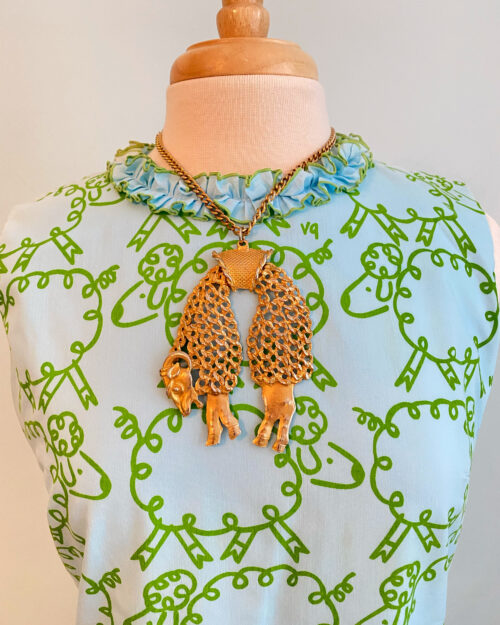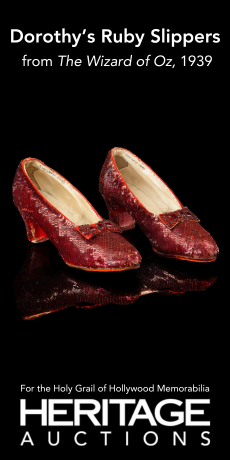
By Stuart Dyer
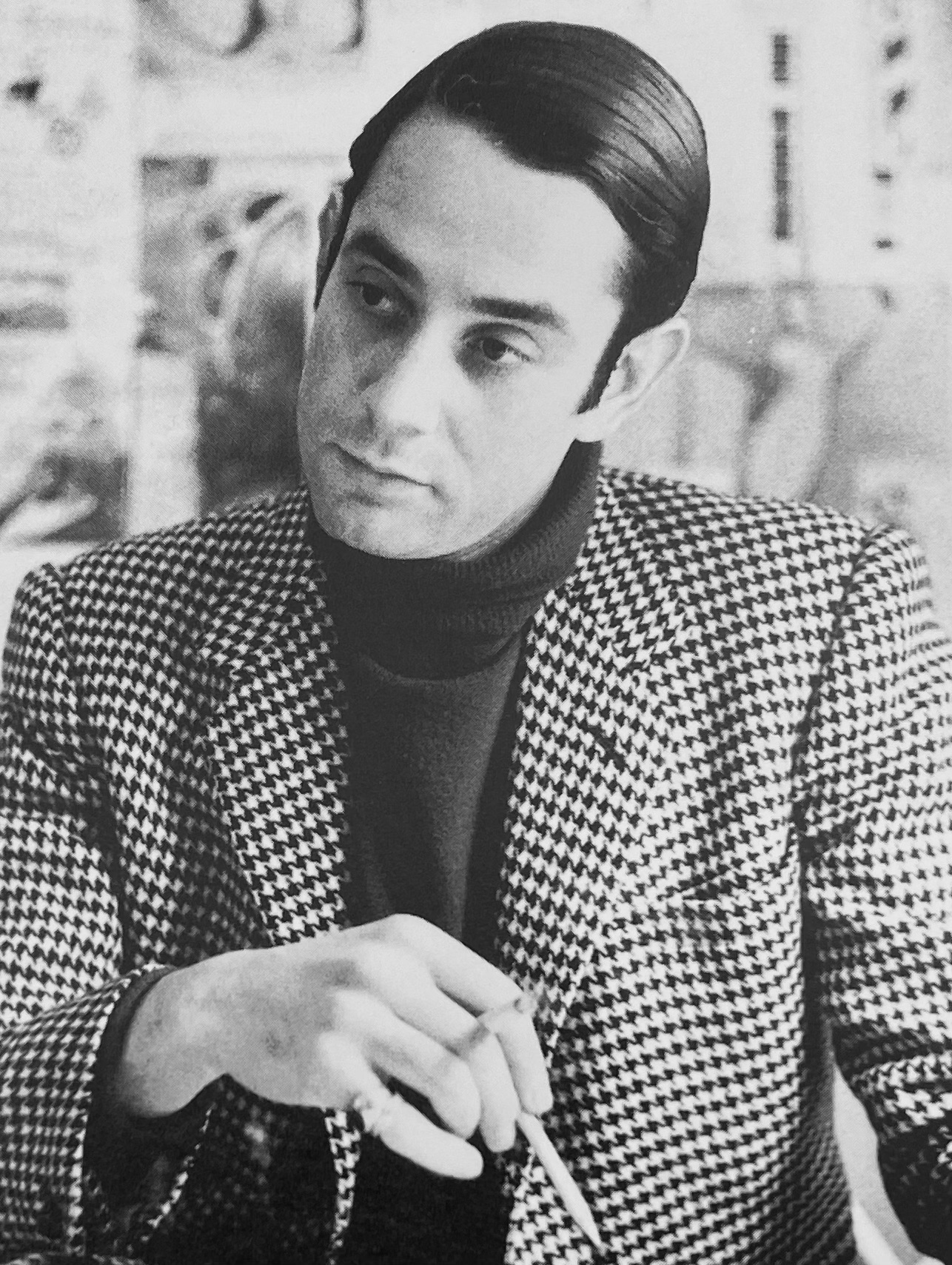
Kenneth Jay Lane in his studio, 1966
For nearly 60 years, Kenneth Jay Lane (April 22, 1932 – July 20, 2017) was one of the most famous costume jewelry designers in the world. Lane was named, “the undisputed King of Costume Jewelry” by Time Magazine. Lane was friends with, beloved by, and worn by celebrities, royals, first ladies, and socialites such as Jackie Kennedy, Babe Paley, Elizabeth Taylor, The Duchess of Windsor, Barbara Bush, and Nancy Regan to name a few. Despite his fame, Lane’s primary focus was always on the everyday woman, her needs, and making sure his jewelry was accessible – perhaps this was because of his Midwestern roots.
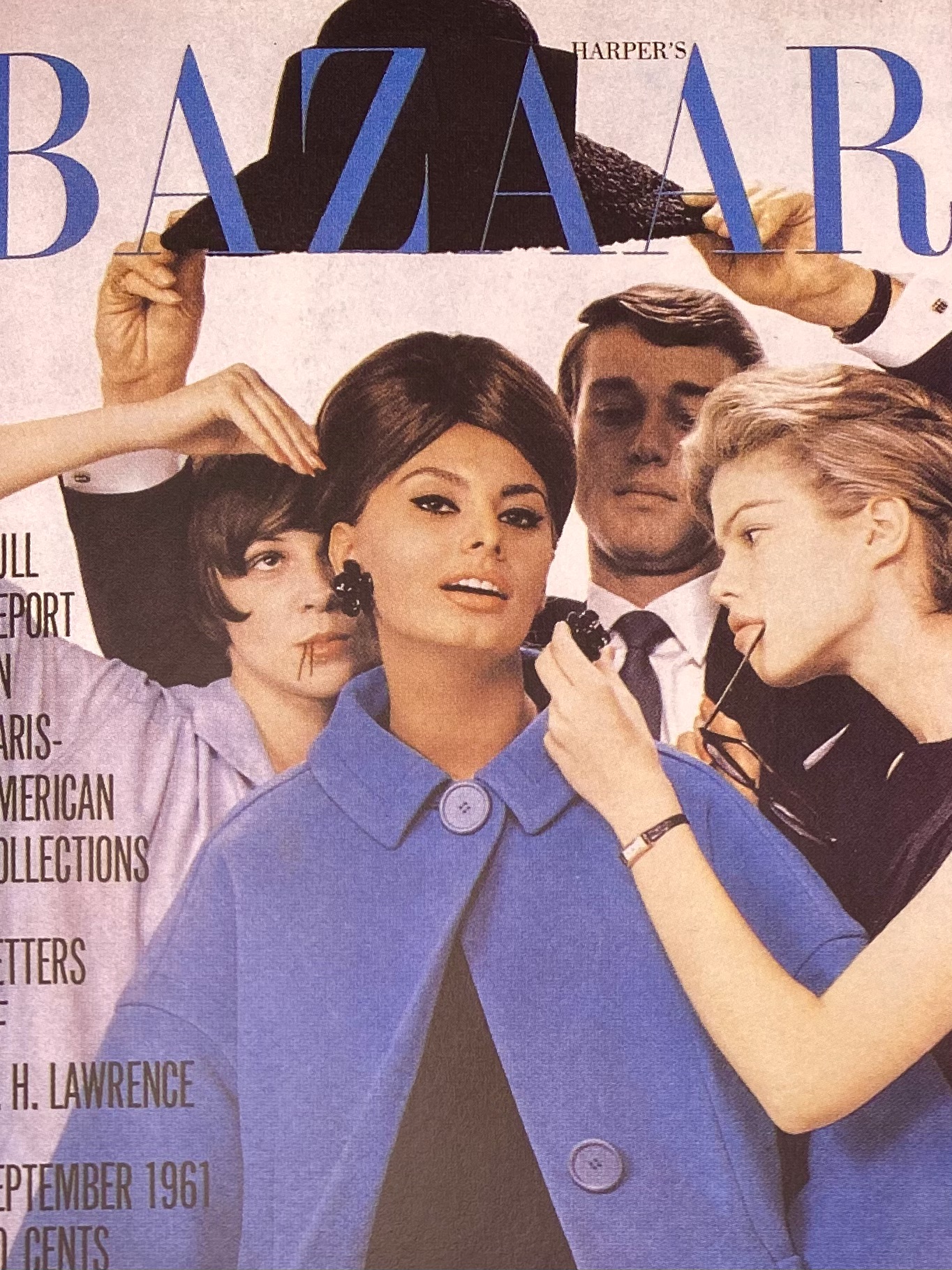
September, 1961 cover of Bazaar Magazine. Mr. Lane can be seen in the back placing a hat on Sophia Loren.
Lane was born in Detroit, Michigan. His father was a dealer in truck and auto parts. His mother was a stay at home mom who adored him and indulged him. Lane was taken on trips to the city of Chicago and traveled on the liner, the Queen Mary to see Europe. Lane went to the University of Michigan for two years to study architecture but decided it wasn’t for him and transferred to the Rhode Island School of Design (RISD) where he graduated in 1954.

Jackie Kennedy in the 1960s wearing her Kenneth Jay Lane pearls.
Shortly after graduating, Lane started working in the art department of Vogue but grew tired of the job and left to design shoes for Delman and Christian Dior among others. While designing crystal encrusted shoes for one of Arnold Scassi’s runway shows, he mentioned to Scassi that he would also like to design matching earrings and bangle bracelets. Scassi loved the idea. Lane bought plastic bracelets at a five-and-dime store and had them jeweled at the factory where the shoes he was designing were being made. Lane then created the earrings himself by using the cores of artificial fruits and covering them entirely with flat-backed rhinestones. The New York Times loved this initial collection of Lane’s jewelry and wanted to write a story about it, however they needed to tell their readers where they could buy the pieces. At the time Lane was primarily designing shoes for companies owned by specialty retailer, Genesco. Genesco also owned the Bonwit Teller department store. Lane set up an appointment with the jewelry buyer at Bonwit Teller and convinced her to buy his line. She bought six pairs of earrings which sold out in a day and then proceeded to order more. Lane’s next jewelry project was making bangle bracelets for a runway show for Bill Blass. Lane wrapped plastic bracelets with scraps of leather and skins leftover from the shoes he designed. These bracelets were also a hit and by 1962 Lane found himself in the jewelry business full-time. It was the start of an epic career.
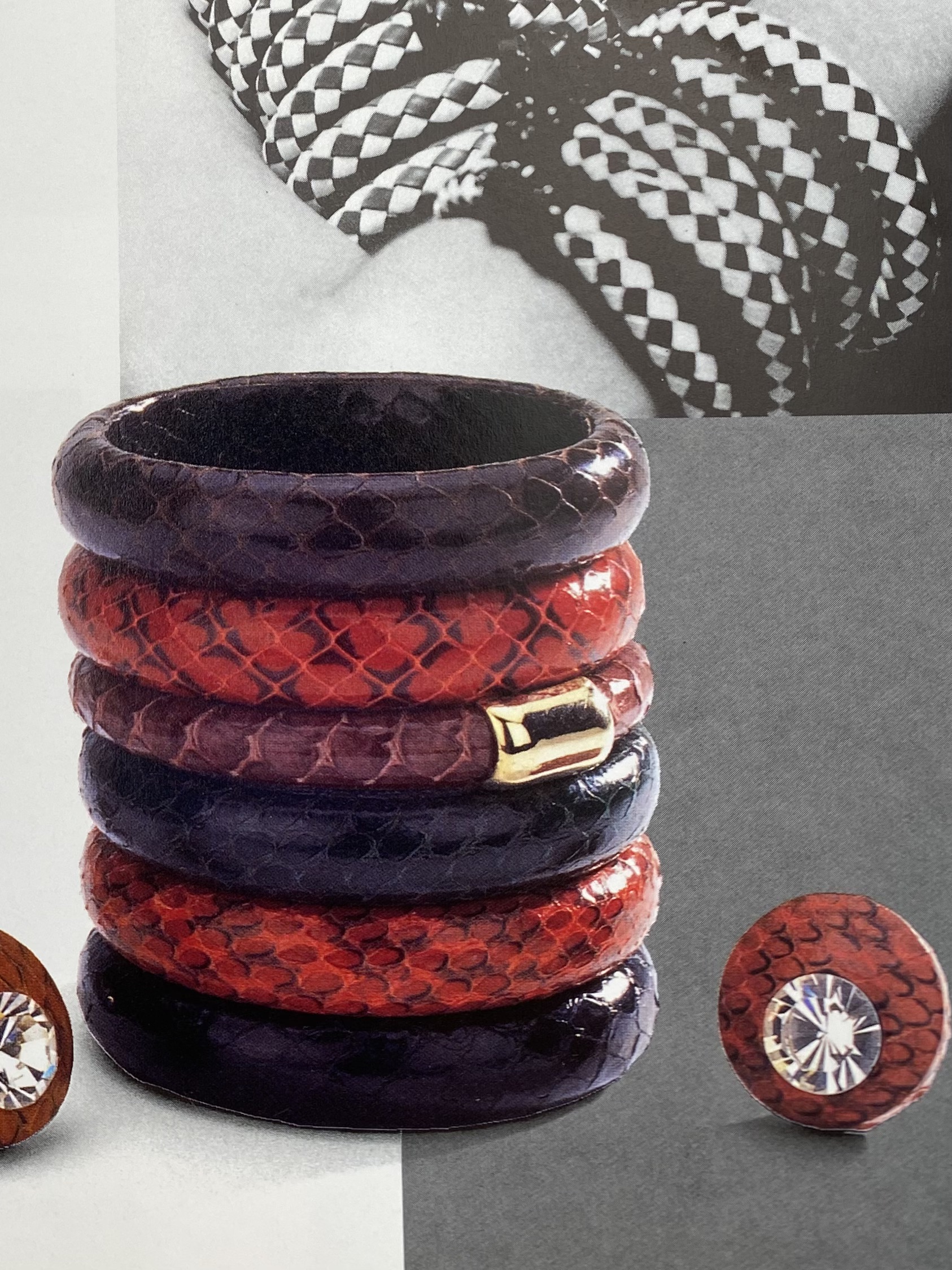
Leather bracelets designed by Kenneth Jay Lane.

- 1960’s – K.J.L. with dots
- 1960’s – KENNETH © LANE, with a big ©
- 1970’s – KJL without dots
- 1970’s – KENNETH © LANE, with very small ©
- 1980’s – K.J.L. © with dots
- 1980’s – K.J.L.® with dots
- 1980’s – KENNETH©LANE, © is centered
- 2001 and later – KJL no dots – used for the Avon by Kenneth Jay Lane line
- 1991-2000 – ©KJL no dots. Used for Kenneth Jay Lane for QVC.
- 1990 to now – KENNETH©LANE with © on the same line as LANE
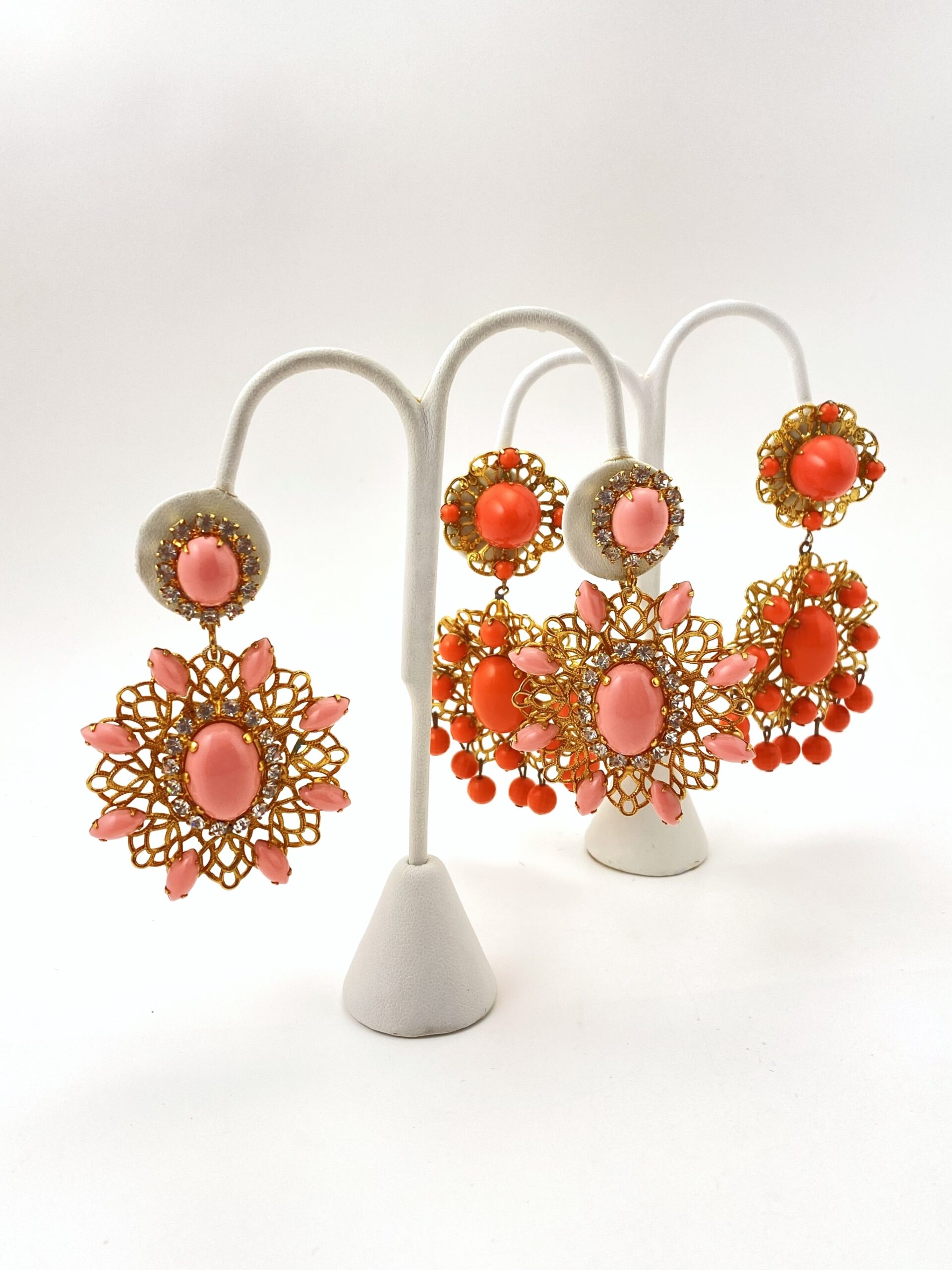
1960s Kenneth Jay Lane earrings, Ladybug Vintage collection
It is not only fun to be able to figure out when a piece of KJL jewelry was made, it is also useful. The pieces from the 1960s and early 1970s are usually the most sought out and command the highest prices. KJL jewelry with a famous provenance can sometimes fetch very high prices. In 1996, Sotheby’s auctioned and sold one of Jackie Kennedy Onassis’s KJL faux pearl necklaces for over $200,000!
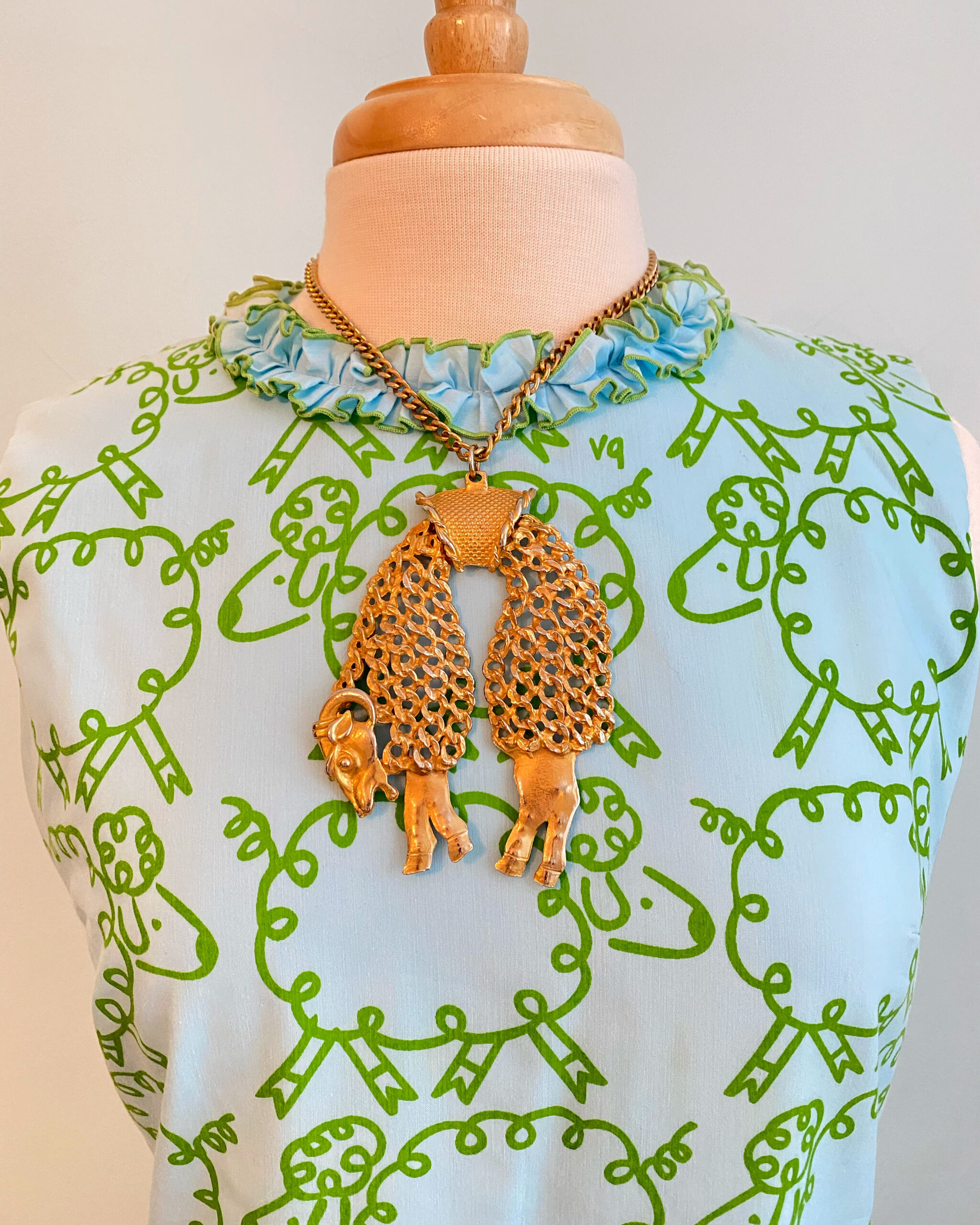
1970s Kenneth Jay Lane golden fleece necklace, Ladybug Vintage collection.
It is impressive that a midwestern boy who seemingly fell into his career would become one of the most famous costume jewelry designers of all time. Similarly impressive is that his faux pieces sometimes command higher prices than fine jewelry. Lane was quoted once as saying, “Even my mother would have been proud of me. How many young men from the Middle West have the opportunity to make a spectacle of themselves in the middle of Manhattan?”



